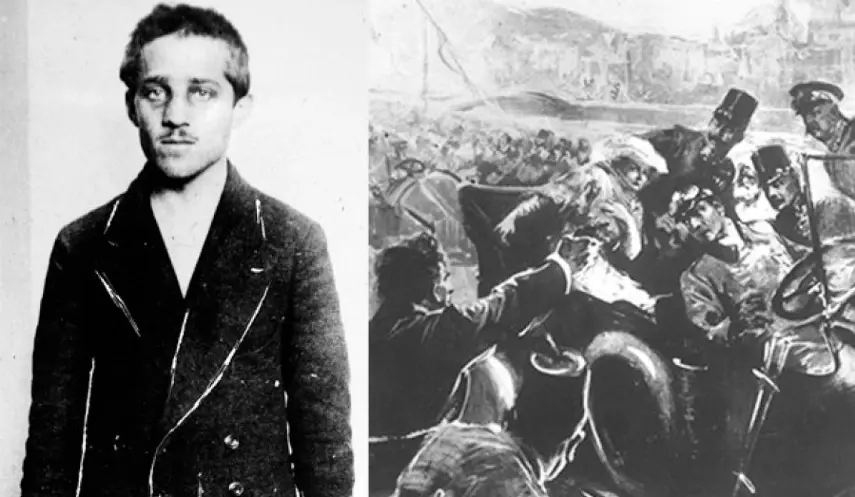GAVRILO PRINCIP - ASSASSIN AND PATRIOT
Republika Srpska - Serbia - Young Bosnia movement - anniversary
07/24/2025
10:12

BIJELJINA, JULY 24 /SRNA/ – Gavrilo Princip /1894–1918/, a member of Young Bosnia and assassin of Austro-Hungarian heir to the throne Franz Ferdinand, was born on July 25, 1894.
As a minor, Princip was sentenced to 20 years of hard imprisonment, and due to inhumane prison conditions and daily torture, he contracted tuberculosis.
Members of Young Bosnia planned the assassination of Ferdinand for Vidovdan, June 28, 1914. After Muhamed Mehmedbašić failed and Nedeljko Čabrinović’s attempt was also unsuccessful, Princip carried out the assassination.
At the trial, Princip stated that Ferdinand’s wife, Sophie, died accidentally and was not a target.
According to eyewitness accounts and court records, Princip conducted himself heroically before the police and court.
He served his sentence in solitary confinement, where he slowly died from starvation and disease, and was systematically and daily beaten.
After the war, some guards and inmates testified that Princip was given food only every fifth day, and tortured brutally in various ways.
His torturers would place him in a wooden barrel lined with large nails, then roll it so that the nails would pierce his body.
Princip was buried secretly during the night between April 28 and 29, 1918. Until the end of the war, no one knew where his grave was.
However, an Austro-Hungarian soldier, Czech Frantisek Lebl, later revealed the place where Princip was buried.
He had received orders to bury Gavrilo at the local Catholic cemetery, with strict instructions not to reveal the grave's location.
Nevertheless, that same night, Lebl drew a sketch of the cemetery and Princip's grave, sending it to his father to keep in case he was sent to the front and killed.
Princip's remains, along with those of Čabrinović, Trifko Grabež, and other conspirators who died in Terezin, were transferred to Sarajevo, where they were buried in a joint grave.
For a long time after World War I, Sarajevo was known worldwide for the assassination carried out near the Latin Bridge.
The bridge bore Gavrilo Princip's name for decades, but during the conflicts of the 1990s, Bosniak authorities renamed it back to Latin Bridge.
This was part of an action aimed at changing the names of all Sarajevo streets that bore the names of prominent Serbs.

SERBS IN TEARS AND FEAR OVER OWNERSHIP OF ORTHODOX CEMETERIES AND CHURCHES

CVIJANOVIĆ DEMANDS ACCOUNTABILITY FOR SHAMEFUL CONCERT IN ŠIROKI BRIJEG

OSTOJIĆ URGES BiH AND EU TO ACT OVER GLORIFICATION OF FASCIST IDEOLOGIES





